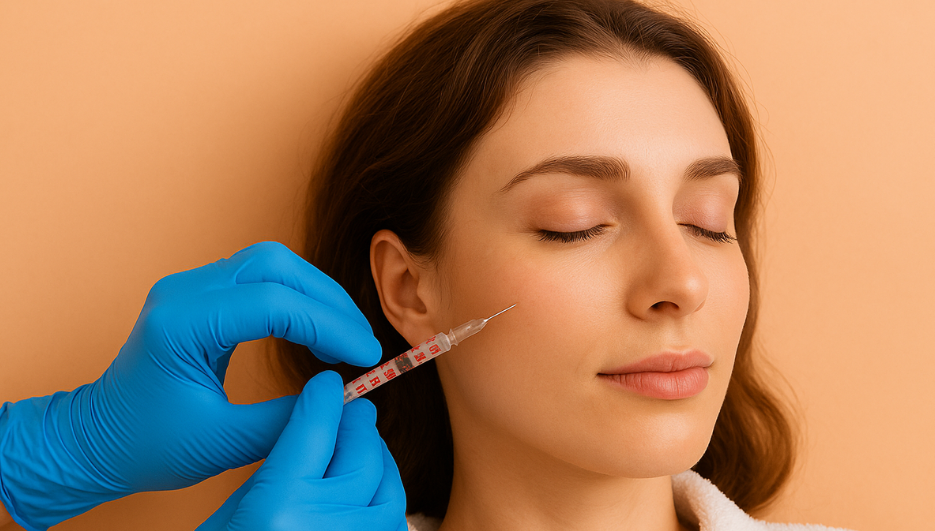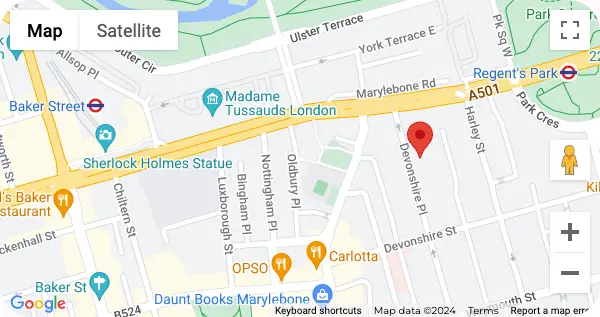In my own patients, Botox has consistently alleviated jaw tension and reduced bruxism-related discomfort. Post-treatment the majority of cases report results within 2 weeks, with further improvement in their range of motion and quality of sleep over the next 12 - 16 weeks.
Dr Aamer Khan
MSC, CHD, MSBC
GMC: 3128431
Introduction
Millions of people suffer from temporomandibular joint disorder or TMJ disorder, and for a number of these people, traditional treatments simply do not work. But what if there were an intervention that could help ease that facial pain without surgery?
Heard of Botox injections for TMJ? A new, cutting-edge remedy that has gained some serious traction. We have witnessed with our own eyes how this therapy can turn the tide for our patients. If you suffer from uncomfortable days, nights of teeth grinding, this could be the relief you have been looking for.
Here, we will cover everything you need to know about TMJ, how Botox is used to treat it and what to expect if you end up giving it a go.
Key takeaways
- TMJ disorder affects your jaw joint and can lead to pain, stiffness or a clicking sound.
- Botox injections work by relaxing the jaw muscles that have gotten tight, thereby providing relief from facial pain and tension.
- Treatment often makes people feel better within a week.
- Results last for 3 to 4 months.
- It is safe, and should only be completed by a trained professional like our team at The Harley Street Skin Clinic.
What is TMJ?
Your TMJ, or temporomandibular joint is where your jaw meets your skull. These joints are pretty active. They assist you with chewing, speaking, yawning and moving your jaw up and down, side to side.
Imagine that as small hinges with a great responsibility. They directly engage muscles, ligaments and bones to make everything move along nicely. When they are all working in sync, you barely even notice them. But when something is off, it can result in temporomandibular joint disorder, or TMD.
Temporomandibular disorder occurs when the jaw joints and muscles do not function properly as they should. In short, it is your jaw’s way of letting you know something is not right. That might be due to clenching, grinding, stress and even how your bite is positioned.
What Are the Symptoms of TMJ?
- Painful or tender jaw
- Clicking jaw when you move it
- Problems with eating or opening your mouth
- Migraines
- Earaches
- Teeth grinding (known as bruxism)
- Locked or stiff jaw
How Can Botox Help with TMJ?
Botox (botulinum toxin), a purified protein, relaxes muscles by disrupting their nerve signals and reducing the abnormal muscle contraction. Best known for softening wrinkles, it can also relax tight and overactive muscles, even the ones in your jaw.
How Botox reduces TMJ symptoms
A few studies have reported that Botox injections into the masseter muscle can relieve symptoms such as jaw clicking, chronic pain and muscle tenderness, relieving TMJ pain, and also gives the joint time to rest and heal.
People who try Botox for TMJ often notice:
- Less pain and jaw tension
- Fewer headaches
- Better jaw movement
- Less grinding at night
TMJ Botox: Does it Really Work?
Yes it does, particularly for anyone who has failed to find relief with other options.
Botox not only relieves the pain, it works to stop the cycle of muscle tension that triggers TMJ symptoms. This is a nice, effective, gentle way of treatment, and it works well for those patients who have tried things like night guards or painkillers and have not had success.
What happens during the treatment?
The treatment itself is simple and fast. In a quick consultation, the doctor will point out a few spots on your jaw, and using a small needle, gently inject little amounts of Botox. The whole treatment takes 15 to 20 minutes, and most people feel nothing more than a little prick.
How many treatments do you need?
Most people start out with one treatment session. You may need to return every 3 to 4 months to keep the results. Most patients experience decreasing painful symptoms over time and can have longer intervals between visits.
When will you start to feel relief?
You may begin feeling better in 3 to 7 days, but the full effect will not be felt for about 2 weeks.
How long do results last?
Botox’ effects are usually felt for a period of 3 to 4 months. And many people, with repeated treatments, find they get permanent TMJ relief.
Effective & professional doctor-led Botox for TMJ at our central London clinic
Botox for TMJ: Risks and Side Effects
Botox is generally safe, especially when administered by trained professionals. But as with any treatment, it can have some risk factors but these potential side effects generally disappear quickly:
- Tiny bruises or some swelling at the injection site where the needle went in
- Headache
- Nausea
- Temporary eyelid droop
- Mild muscle weakness
- Very rare facial asymmetry in the mild degree
These side effects are usually transient and will soon subside of their own. We are always very careful about making sure that we are using a precise delivery and the right dose so that we can minimise potential side effects.
When to contact a professional
If you are experiencing persistent weakness, have trouble swallowing or notice changes in your bite, call your doctor. These are rare but important to check right away.
Can Botox cure TMJ?
Botox cannot treat TMJ, but it sure can change how you feel. It is an alternative treatment that can help with symptom management by relaxing muscles that are too tight, though other causes of TMJ like stress, or the structure of your jaw, might call for a different treatment.
Consider Botox as one part in the toolkit for TMJ management. It offers fast relief, especially if used in combination with other treatments, such as physical therapy or bite guards.
Is Botox the right TMJ treatment for me?
You should consider Botox if:
- You have already tried other treatments, pain relief or even therapy with minimal results
- The tension in your jaw is caused by clenching or grinding
- You are looking for a non-invasive treatment with minimal downtime
You should not get Botox if you are pregnant, a breastfeeding mother or have certain facial muscles or nerve conditions.
Can Botox be combined with other TMJ treatments?
Yes, it can! Botox plays well with other treatments, such as:
- Custom guards or splints therapy at night
- Physical therapy
- Methods of relaxation and stress management
- Medication that may relieve pain
FAQs
- Can Botox make TMJ worse?
Not when done by an expert. In fact, Botox is a safe and effective method of lessening TMJ pain. It could mess with other facial muscles in the area if injected incorrectly, but that is extremely rare with an experienced practitioner.
- Can Masseter Botox help TMJ?
Yes. The masseter and temporalis muscle is one of the primary muscles you use when you clench your teeth or grind them. Botox relaxes the jaw muscles here to relieve pressure and alleviate TMD symptoms.
- Does Botox for TMJ change your face shape?
It can, but in a good way. Botox can also slim an overly muscular, bulky jaw. This can result in a softer, more balanced appearance which is especially beneficial if you have a square or wider jawline from clenching.
Reserve a botox appointment
One of our experts will be more than happy to answer any questions you have.
Book AppointmentGeorge Loffhagen
★★★★★
Very helpful. Great advice and very friendly.
24th January 2026
Jane
★★★★★
Very kind Treatment by Rose
26th January 2026
Far Ald
★★★★★
Pola was professional, kind, and attentive. She explained everything clearly and made me feel comfortable throughout the session.
26th January 2026









